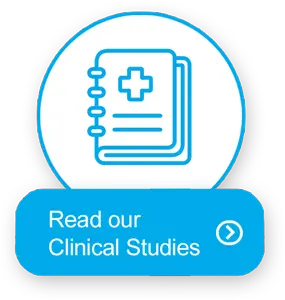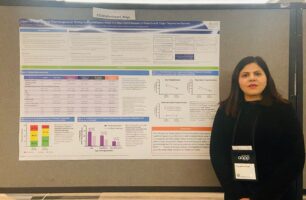
According to the Primary Care Companion to the Journal of Clinical Psychiatry, in primary care, more than half of “outpatient medical visits are for somatic complaints, which are often associated with depression and anxiety. However, even if patients with depression and anxiety complain of only somatic symptoms, they will answer questions about the presence of depressive or anxious symptoms if asked.”
Depressive symptoms can present in many ways. According to the Mayo Clinic, some of the symptoms are psychological, including:
- Being overly emotional or lacking emotions
- Having anxiety
- Feeling irritable, frustrated or angry (even over “the little things”)
- Feeling sad or hopeless
- Not feeling interested in normal activities like sex, sports or hobbies
- Feelings of worthlessness or guilt
- Recurrent thoughts of death, suicide or suicidal actions

- Sleeping too much or too little
- Lack of energy or feeling tired
- Weight gain or loss
- Back pains, headaches or other physical symptoms
When a patient comes into your practice, he or she may not be aware that these symptoms are pointing not to a physical illness, but to depression. Accordingly, the patient may benefit from a depression screening.
“Depression is a silent illness. There are often no signs of the illness to observe on the outside, while on the inside patients are truly struggling,” said Amanda Porter, MSN, APRN, PMHNP-BC, psychiatric nurse practitioner at the Lindner Center of HOPE. “Primary care providers often are the first healthcare professionals to uncover a mental health diagnosis due to their increased accessibility. Therefore, it’s important to screen each and every patient at his or her annual physical, or more often if appropriate.”
The National Institute of Mental Health states that primary care settings, like a doctor’s office, provide about half of all mental health care for common psychiatric disorders. This is important for two reasons:
- Adults with serious mental illnesses and substance use disorders have higher rates of chronic physical illnesses and die earlier than the general population
- People with common physical health conditions also have higher rates of mental health issues
Accordingly, screening for mental health issues is becoming the responsibility of the primary care practice.
National Depression Screening Day
There’s no better time for doctors to begin incorporating mental health screenings into their patient consultations than National Depression Screening Day.
Held annually during Mental Illness Awareness Week, the observance began as a mental health education effort to reach people across the country and connect them with support services. This education and screening event is conducted by hospitals, clinics, colleges and community groups nationwide.
You and your practice can join other healthcare providers in participating in the day by ordering a kit from the Screening for Mental Health non-profit organization. The kit includes materials and resources to host a screening day in your practice.
The Lindner Center of HOPE is one of the national screening supporters. “It is our mission and passion to decrease the stigma of mental health diagnoses, as well as increase accessibility to services for the benefit of public mental health,” said Porter. “By sponsoring the National Depression Screening Day, we hope to promote awareness of the symptoms of depression while also helping those who suffer from depression to connect with a mental healthcare provider.”
Porter suggests that incorporating mental health screening into patient’s regular visits can be relatively easy: a common tool used is the Patient Health Questionnaire (PHQ-2). It consists of only two questions, and can be completed in only a few minutes. Once an initial screening has taken place, and a mood disorder is diagnosed, the most common tool used to track severity is the Patient Health Questionnaire (PHQ-9).
Pointing Patients to an Online Screening
Patients can also take screenings online at https://helpyourselfhelpothers.org. The program screens not only for depression, but general anxiety disorder, bipolar disorder and post-traumatic stress disorder.
The screening is free, anonymous and straight-forward. The survey first asks if the patient is a member of the military, a college student or the general public. Once a response is selected, a second window opens to choose a patient’s state and an organization in a nearby city or county.
The actual screening is next. Patients are asked to classify how they are feeling currently (e.g., “feeling sad, down or empty,” “constantly worried, anxious,” “concerned about my teen’s mood,” etc.) and then about the past few weeks, including questions like:
- Have you been blaming yourself for things?
- Have you had a poor appetite?
- Had feelings of worthlessness?
- Had suicidal thoughts or feelings? (If a patient answers that he or she has had these thoughts, a pop-up window shares, “If you have thoughts of harming yourself or others, either call the National Suicide Prevention Lifeline 1-800-273-TALK (8255), dial 911 or go immediately to the nearest hospital emergency room for an evaluation.”)
At the end of the screening, the test indicates if the patient has symptoms consistent with depression or another disorder. If so, patients are encouraged to seek additional support from a professional and provides referral information. It also asks the patient if he or she will seek additional help.
Mental Health Screening is Vital to Overall Patient Health
Screenings for mental health disorders are as important as high-blood pressure, diabetes and other physical diseases and disorders. Mental health screenings are often the first step in getting help. Not only is clinical depression a serious medical illness, it can lead to suicide and can co-occur and complicate other medical conditions.
As a primary care physician, you are on the front line of the care for your patients. As Porter says: “Having a healthcare professional acknowledge the troubling symptoms validates that the patient is worthy of treatment.”
Encouraging your patients to take the free screening can help more people get the help they need, as only about a third of those suffering from depression seek treatment from a mental health professional.
“Routine screening is important for patients who might not have insight into their depressive symptoms,” said Porter. “Perhaps the patient is minimizing the severity of their symptoms, or fears being stigmatized. The sooner a diagnosis of depression is made, the sooner a treatment plan can be developed to help the patient recover from their illness.”
If medication is being considered for your patients, the GeneSight test can inform you about genetic variations which may impact how patients metabolize and respond to certain medications used to treat mental health conditions. The GeneSight test can be administered in-office, or you can send a GeneSight® at Home sample collection kit directly to your patients.
Our articles are for informational purposes only and are reviewed by our Medical Information team, which includes PharmDs, MDs, and PhDs. Do not make any changes to your current medications or dosing without consulting your healthcare provider.
The GeneSight test must be ordered by and used only in consultation with a healthcare provider who can prescribe medications. As with all genetic tests, the GeneSight test results have limitations and do not constitute medical advice. The test results are designed to be just one part of a larger, complete patient assessment, which would include proper diagnosis and consideration of your medical history, other medications you may be taking, your family history, and other factors.
If you are a healthcare provider and interested in learning more about the GeneSight test, please contact us at 855.891.9415. If you are a patient, please talk with your doctor to see if the GeneSight test may be helpful.





